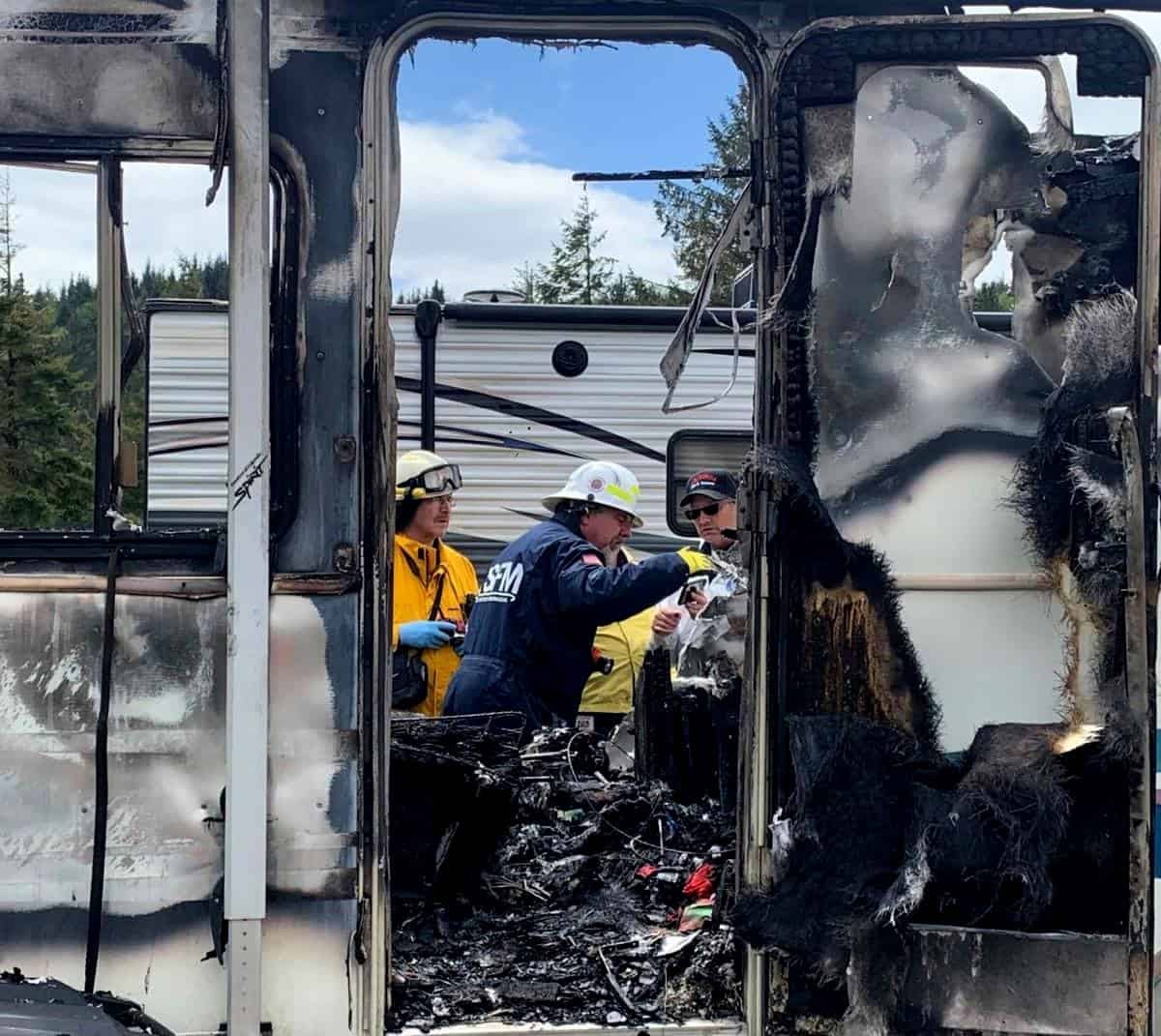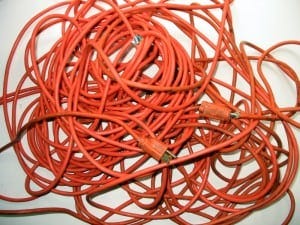Electric space heater tragedy in an RV
A reminder not to plug an electric space heater into a long (or any) extension cord...
Everyone
Here’s another reminder about the dangers of portable electric space heaters and extension cords. Read this sad story below, then let’s discuss what likely happened and how to avoid a similar tragedy.
Read the full story HERE
‘Crews arrived at the Tillamook Coast RV Park four minutes after receiving a call about a fire. On arrival, they found other RVers hustling away fuel cans from the scene, and trying to hold back the flames with a garden hose. Douglas James Schoniger (40) of Tillamook died in the fire.
Investigators found the cause: A 100’ extension cord was coiled up and lying under a stack of clothing and other combustibles inside the rig. The cord was being used to power an electric space heater, and the heater’s demand far exceeded the ability of the cord. Additionally, there was no working smoke detector in the rig. One investigator noted that he had the power to inspect businesses for hazards like these, and help ensure corrections. In the case of private residences, he can only hope people take care of their own safety.”
It’s me again…
As I’ve noted many times before, a portable electric space heater produces a huge, continuous load on any outlet it’s plugged into. Now, if the outlet is well maintained and all connections properly tightened it should be safe. However, if you allow the contacts to become oxidized (corroded) or any of the terminating screws to loosen, then there’s a high resistance point created that can easily overheat under load. You’ve probably seen the pictures of burnt outlets I’ve posted here many times.
A recipe for disaster!
But this fire was a little different. It appears to have been caused by a 100-foot lightweight extension cord that the space heater was plugged into, coiled up under a pile of flammable clothing and other combustibles. Also note that there was no working smoke detector in his RV.
This, quite simply, is a recipe for disaster. And indeed, it resulted in the death of Douglas James Schoniger.
What happened?
Here’s a video I did a few years ago demonstrating how hot an extension cord will get when it passes twice its rated current. In it the insulation temperature reached 190 degrees F in 5 minutes, and would have gotten hot enough to catch on fire in just a few more minutes. An extension cord buried under combustible materials will get even hotter from lack of air flow. So, a few hours of overheating is almost a guarantee that a fire will start under these conditions. Watch the video by clicking on the Youtube link above or HERE.
In Review….
What you need to know to help prevent another tragedy like this one
NEVER plug any electric space heater into a lightweight or long extension cord. If you do need to use an extension cord, only use a short, heavyweight cord rated for air conditioners (like this one).
LG DON’T plug an electric space heater into a power strip. That’s a sure fire hazard.
ALWAYS keep all flammable materials (clothing, newspapers, etc.) away from all electrical cords and outlets.
MAKE SURE you have operating smoke and CO detectors in your RV, as well as your bricks and sticks residence.
Some of the products above have affiliate links. This means that, at zero cost to you, I will earn a commission if you click through the link and finalize a purchase. But feel free to find your best deal anywhere you like.
OK, everyone. Remember that electricity is a useful and powerful force, so we all need to pay attention to safety precautions while using it - Mike









I would also mention that the cheap RV outlet plugs don't have screws that can loosen. They connect to the wires by piercing them and hold by friction. Not good for heavy loads.
Thanks for another great article and for suggesting a heavy duty extension cord Mike. Sometimes you need to run power hungry appliances with an extension cord so having one around that is built to handle the load is critical. Another tip is to run the load at the lowest possible power level you can. If it’s a heater or hair dryer, try not to run it on “high.”